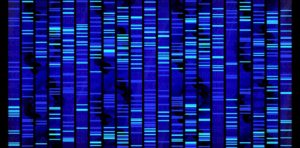Leave a Comment:
11 comments
[…] To Learn More about cancer genetics and epigenetic- click now Thank you, David Emerson […]
Reply[…] To Learn More about cancer genetics and epigenetic- click now […]
Reply[…] To Learn More about cancer genetics and epigenetic- click now […]
Reply[…] To Learn More about cancer genetics and epigenetic- click now […]
Reply[…] To Learn More about cancer genetics and epigenetic- click now […]
Reply[…] to https://peoplebeatingcancercoaching.org Let me know if you have any questions. David Emerson Cancer Genes- Turn on, turn off… ‹ Prostate Cancer Therapy Posted in non-conventional therapies, nutrition Tagged with: […]
ReplyMy husband has a 3 cm tumor in his colon that has been diagnosed as malignant. Nothing more now. Vitamin C & E will be added. He is 78 years and very active training horses.
ReplyHi Leslie-
I am sorry to learn of your husband’s colon cancer diagnosis. A 3 cm tumor is quite small. Please get a second opinion to confirm malignancy and stage as staging directly relates to the therapy plan and prognosis (chemo, radiation and outlook).
Colon Cancer staging slide show- see slide #10
When you say “nothing more now” I take you to mean that there is no therapy, surgery or otherwise, planned at this stage?
There are several antioxidant, non-toxic supplements that studies have show are cytotoxic (kills) to colon cancer. If you are interested I can provide both the studies for your review- I take low doses of many of the same supplements for my own cancer.
Let me know if you are interested and if there is any information I can provide.
thanks and hang in there
David Emerson
ReplyAnother suggestion would be learning everything you can about your Myeloma. They call it Multiple Myeloma for a reason– What sub-type do you have? What is your genomic risk? There is a test MyPRS that gives you all of this information and information is key in decision making.
GOOD Luck and God Bless
ReplyHello, my name is Scott, I’m 44 and was dx’d with MM in July 2015. Scans revealed many bone lesions, blood and urine had high levels of free light chains. Bone marrow biopsy showed lots of plasma cells. I just finished four cycles of CRD and was told by my oncologist yesterday that I achieved complete remission. Although there is no evidence of residual disease in my blood, urine, or bone marrow, the plan is to continue on with the auto transplant in late Nov/early Dec. I’ve been trying to find research that would suggest whether or not a “wait and see” approach is reasonable since there is no evidence of any disease remaining. I would be interested to hear your thoughts on this or if you’ve seen research on this? Thank you for your time!
ReplyHi Scott-
I am sorry to read of your MM though I will offer congratulations for reaching complete remission. You are correct to wonder if aggressive therapy in the form of an auto SCT in a few weeks is the right path for you. Though I have an opinion I will try to present both sides of the issue below.
Pro SCT-
1) Your onc. will tell you that you have the best chance for a deep, long remission by reaching CR with induction therapy (CRD) and then hitting your MM again with an ASCT.
Pro Wait and See-
1) An ASCT is aggressive, toxic therapy. Collateral damage aka side effects- short, long-term and late stage side effects are well documented and even your onc. has to admit that collateral damage will occur.
2) There is disease still hiding inside you. This is why all MMers relapse. Well, not everyone. The article/study that you came in on, the study conducted by Dr. Dean Ornish leads me to believe that MM can only be cured by changing our genetic expression.
Please keep in mind that while my reasoning has been verified for prostate cancer, it has NOT been verified for MM.
3) There are a host of non-conventional, non-toxic therapies that are evidence-based, aka supported by research, that are cytotoxic to MM cells. I have been doing these therapies for years. If you are interested I can present those studies that pushed me to do what I do.
4) Lastly, and perhaps most importantly, there is no reason for you to have an ASCT immediately. The reason given by conventional oncology will be that high-dose chemotherapy (ASCT) will work best when the MM cell load is lowest in your body. Though I have never found a study that supports that reasoning.
The research I can present is 1) non-conventional therapies that kill MM yet are non-toxic. 2) A link to info about the one conventional oncologist, Dr. James Berenson, who advocates a “control” rather than a “cure” approach to MM.
I will link info to Dr. Berenson below. I am not advocating that you see Dr. Berenson unless you live near LA. I am linking info about him to educate you about his approach.
Let me know if you have any questions. Let me know if you would like info, studies about nonconventional MM therapies- studies, brands, doses, etc.
thanks and hang in there
David Emerson
Reply



